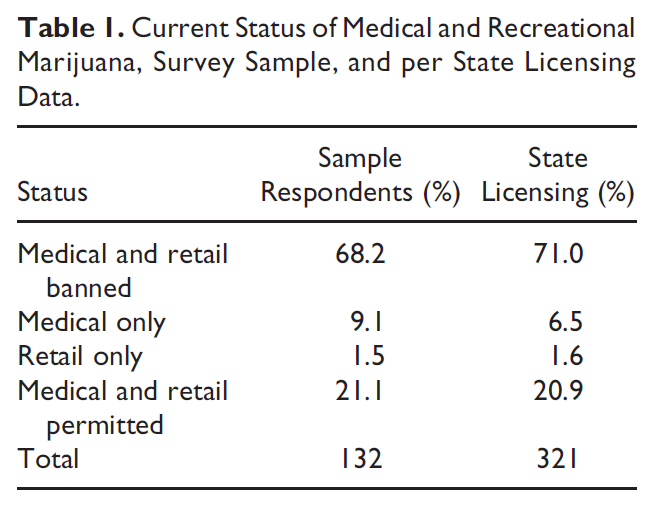What leads to the local adoption and implementation of recreational marijuana policies?

When states move to legalize marijuana, local governments are faced with enacting—or in some cases restricting—the policy change in their jurisdictions. Using Colorado as a case study, a new study finds that public opinion, tax revenues and existing medical marijuana policies affect local governments' decisions to allow the sale of recreational marijuana. This study is published today in State and Local Government Review.
Examining surveys completed by 110 different Colorado local government officials and a panel discussion of six, study author Dr. Tracy L. Johns found that among those who permit recreational marijuana use:
- 95.5% cited public opinion as a reason for their decisions and 50% cited culture or the community's shared beliefs, values and common practices, as a reason for their decisions.
- 50% were influenced by revenues generated by taxes, 27.3% by revenues generated by applications for recreational marijuana establishments and 18.2% by revenues generated by related businesses.
- About 50% had issued their own additional local taxes on recreational marijuana, with most of the remainder reporting that they had plans to do so in the future.
- 88% that already permit medical marijuana permitted recreational marijuana sales.
Many of the panellists reported that citizen votes to allow marijuana businesses in their communities were often very close. The sometimes substantial percentages of citizens who were not in favor affected how the panellists made council decisions and established regulations. Panelists noted, however, that the financial benefits of recreational marijuana businesses helped change the opinions of citizens who were originally opposed.
Future policy issues, as identified by the panellists, included regulating marijuana-infused foods, which often look identical to non-infused foods, as well as problems related to short-term housing rentals, such as Airbnb, that lack the same regulations as traditional hotels.
Johns wrote that all of the panellists "agreed that recreational marijuana is a 'policy experiment' that, by its nature, carries a learning curve that necessitates continual adaptation."
More information: "Managing a Policy Experiment: Adopting and Implementing Recreational Marijuana Policies in Colorado" State and Local Government Review, 2015.


















